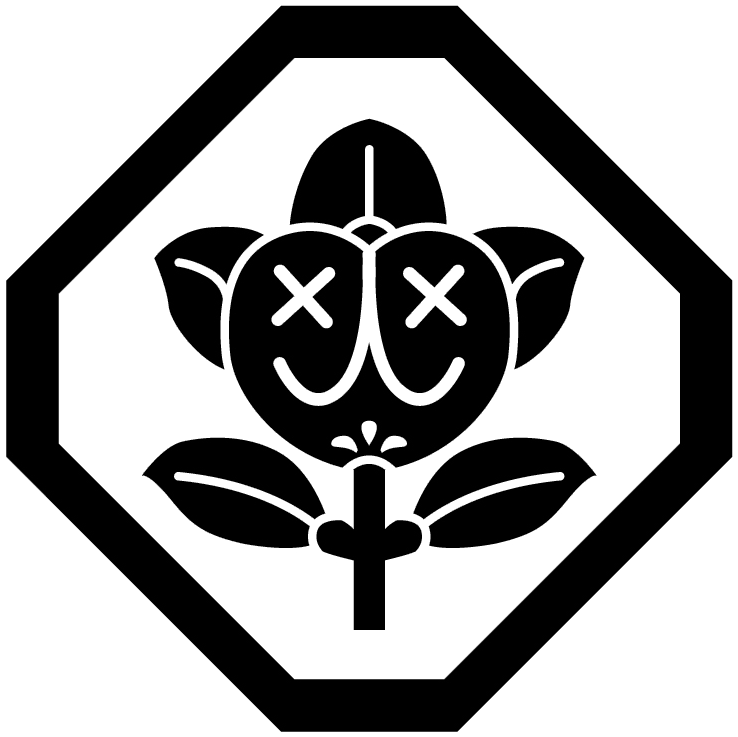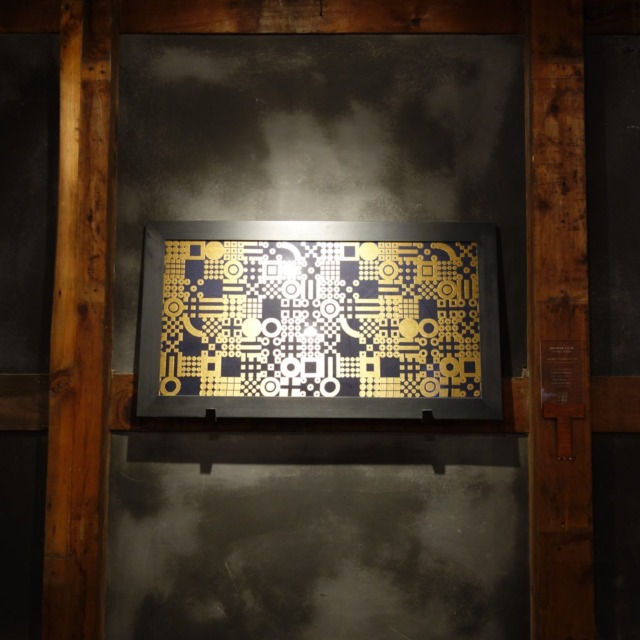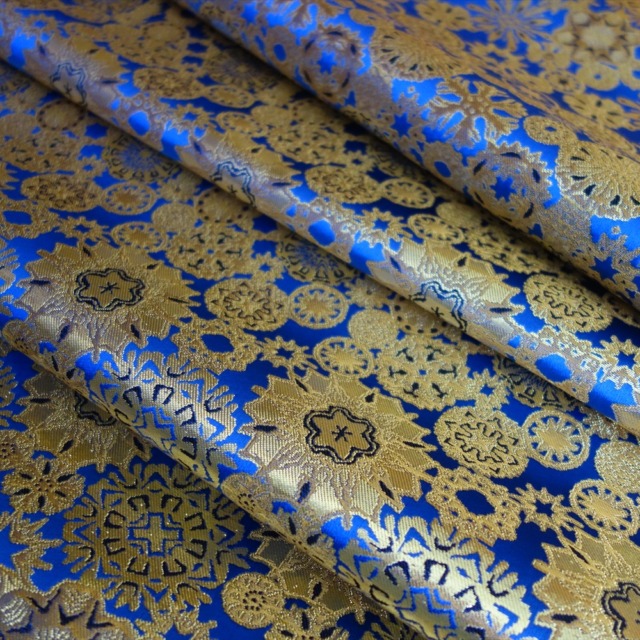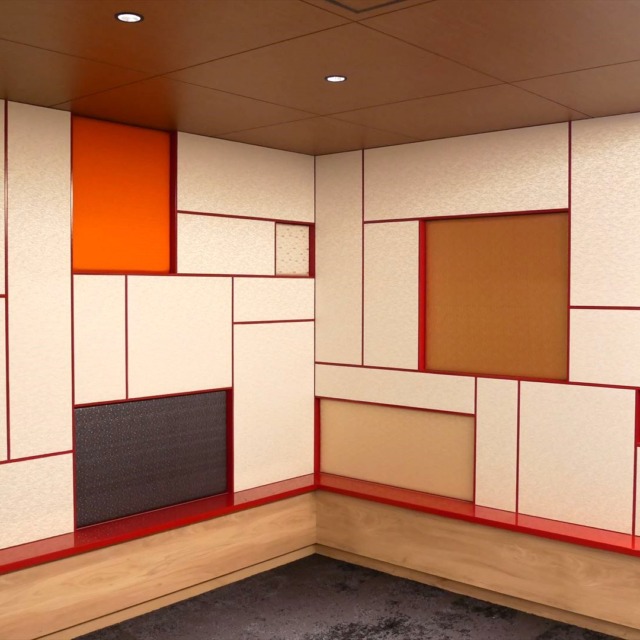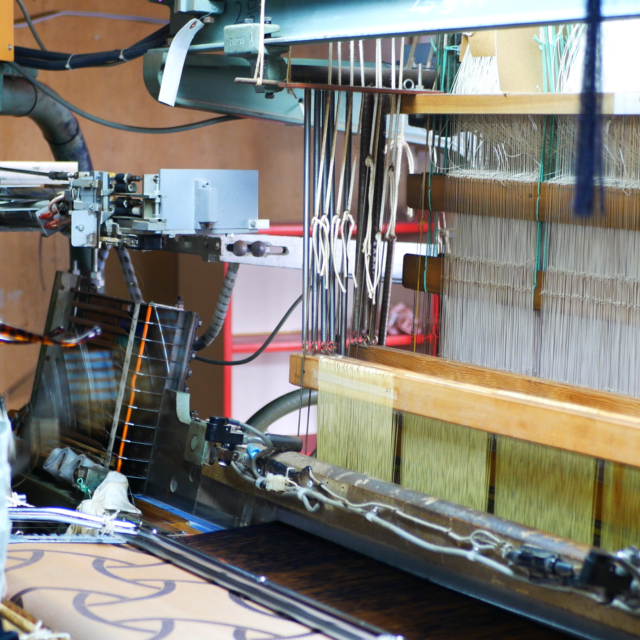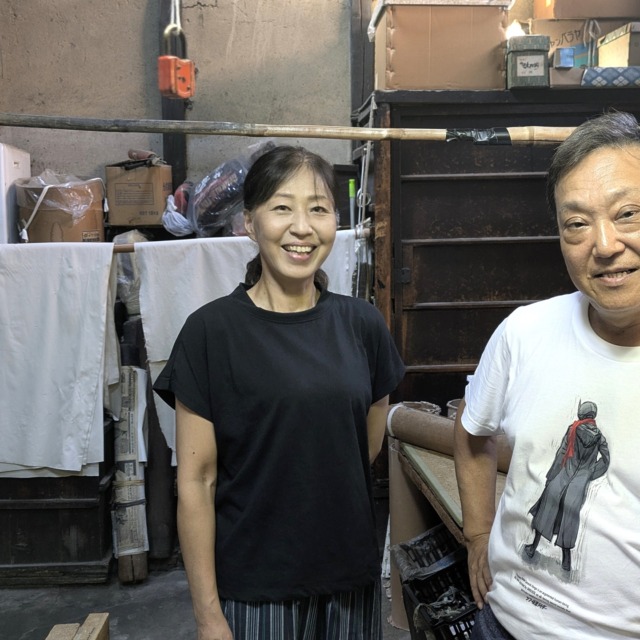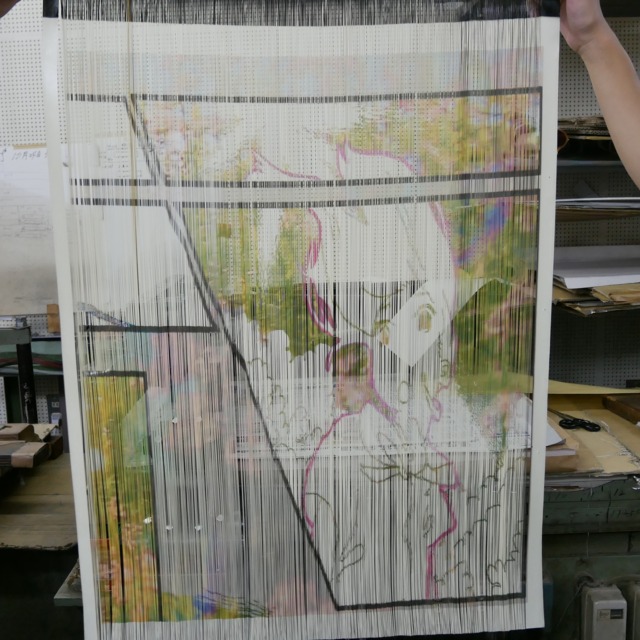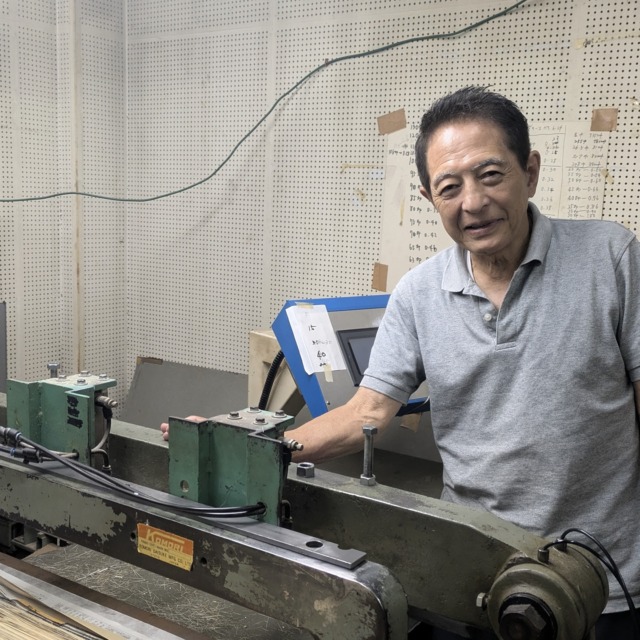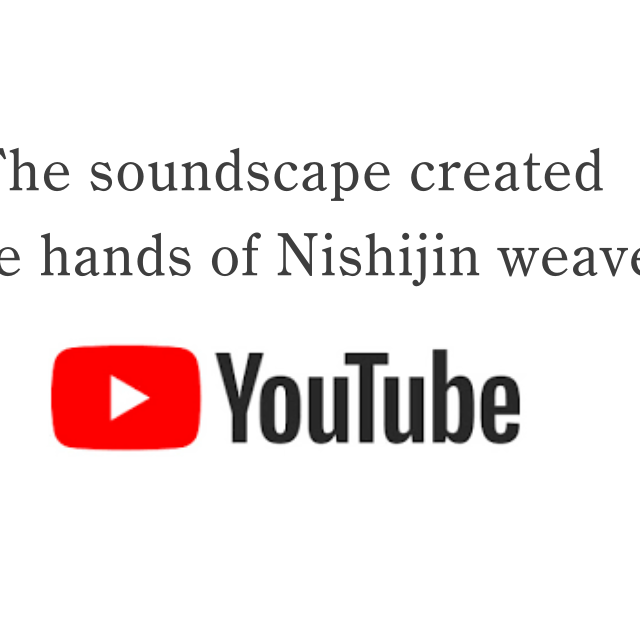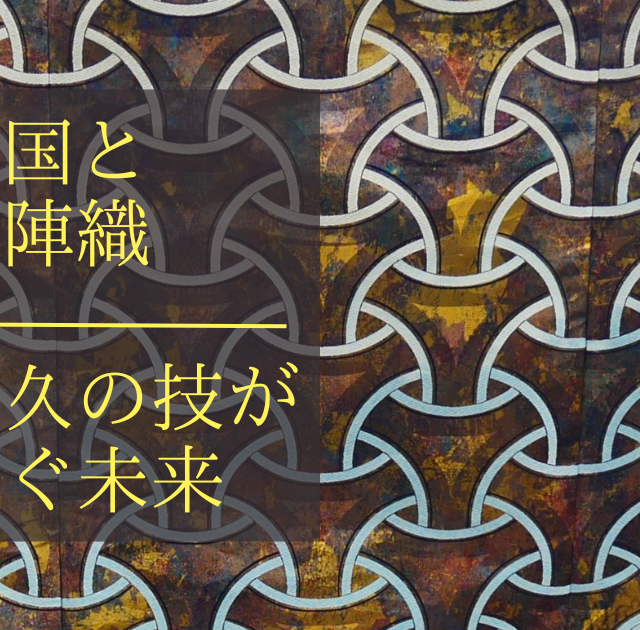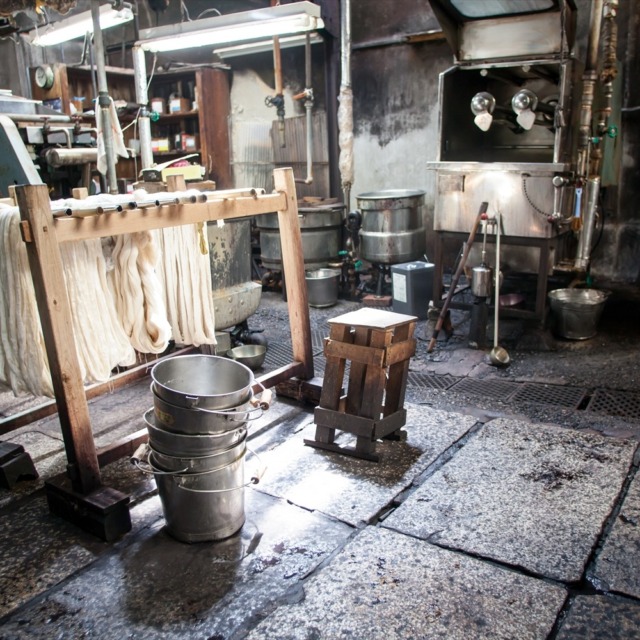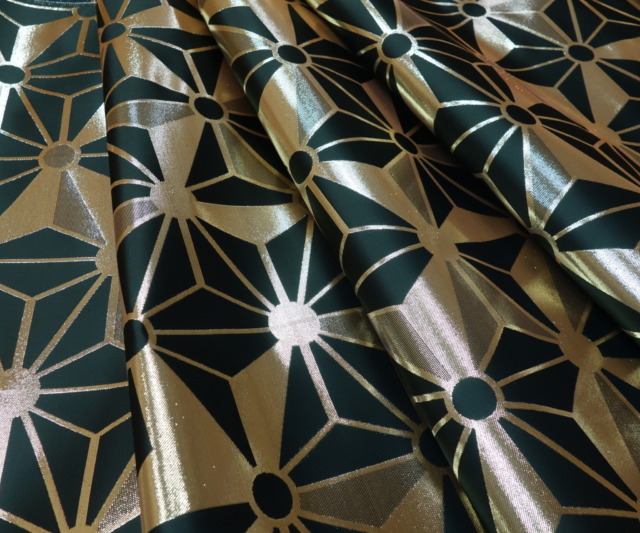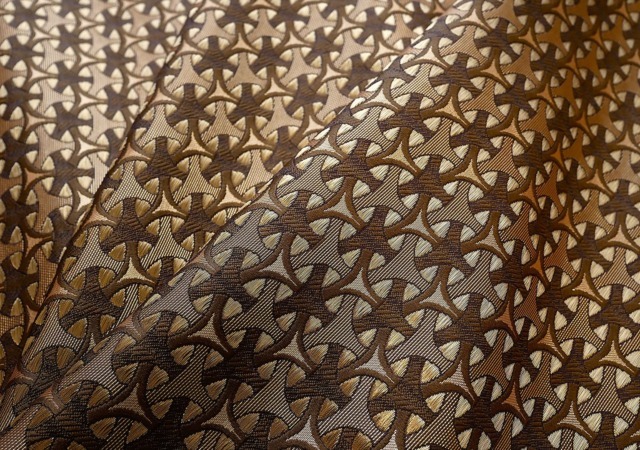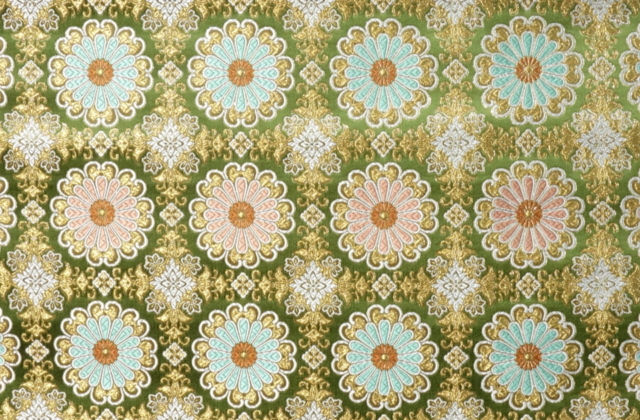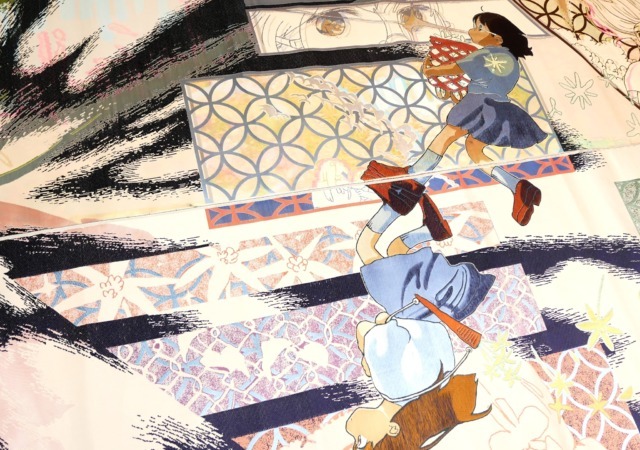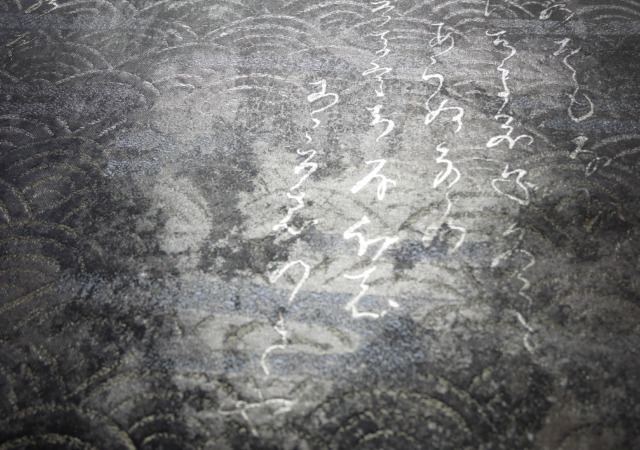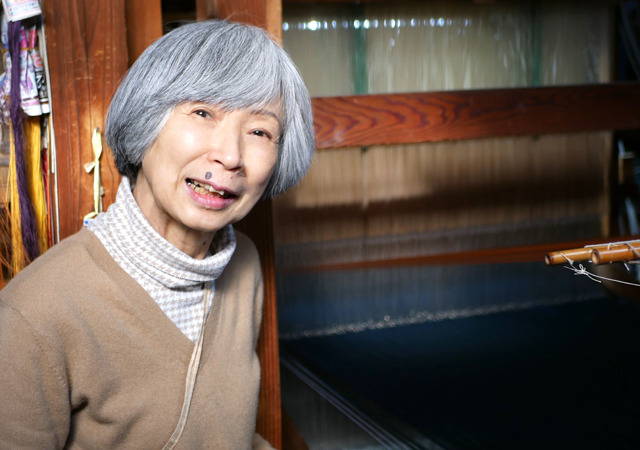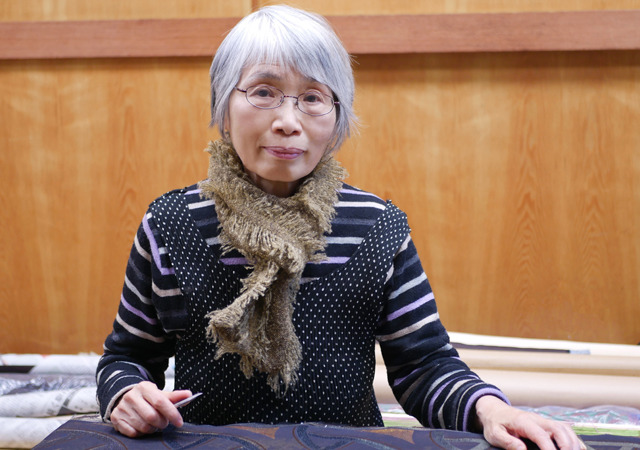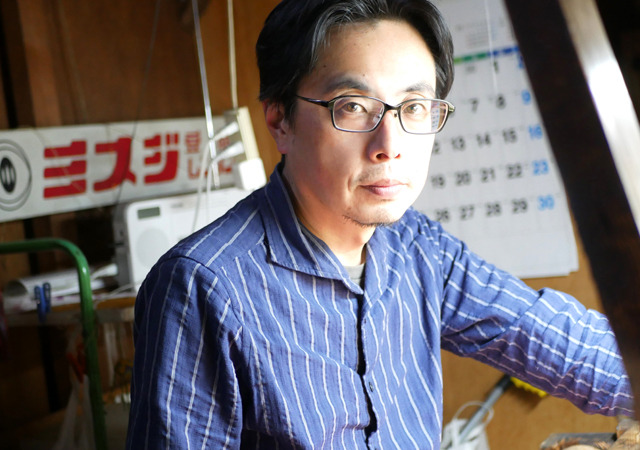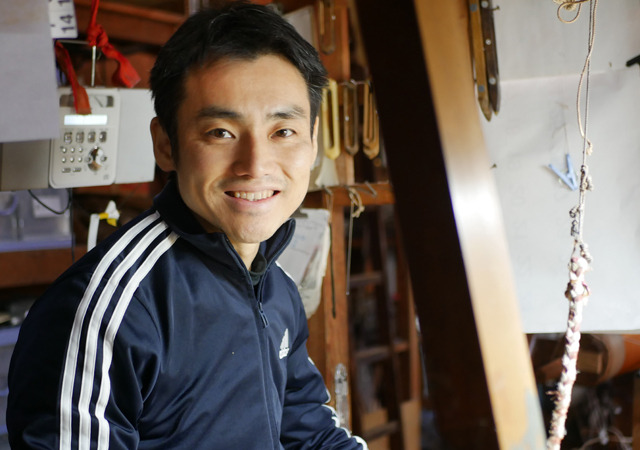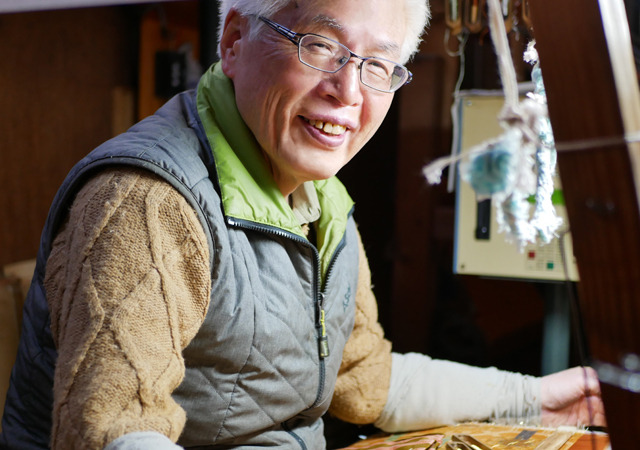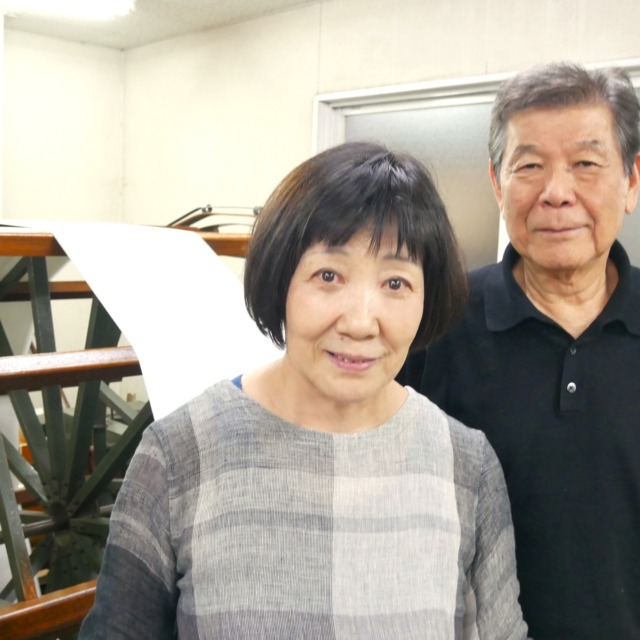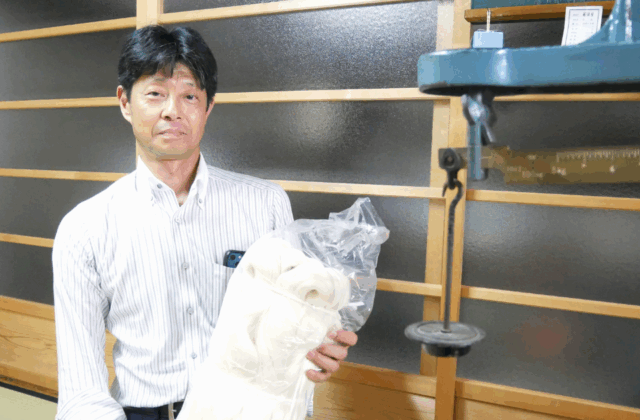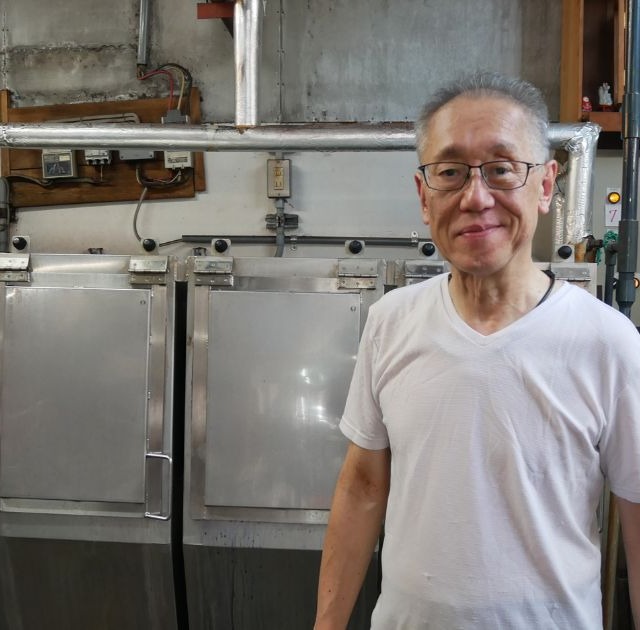Okamoto Takako
Wife of Mitsuo. Born in Takachiho, Miyazaki Prefecture. After graduating from a junior college in Kansai, met and married Mitsuo while working in Kyoto. Responsible for inspection, accounting, etc.
I am from Kyushu and came to Nara when I went to junior college. For me, the culture and townscapes of Nara and Kyoto were the object of my admiration. I wanted to live there for a while, so I continued working here after graduation. I planned to return to my hometown after a couple of years, but I met my husband and decided to get married. I had no knowledge of Nishijin textiles until then, and was surprised to see the magnificent hand looms and fabrics when I visited the factory for the first time. When my husband sat down in front of the loom and started working, I thought it was refreshing to see a different expression on his face from the one he showed me outside. This was about 50 years ago.
People around me told me that marrying into a weaving business would be hard, and I was prepared for it, but my parents and the rest of my family treated me very well, and I was able to blend in naturally. Of course, I had never seen a fabric before and had never touched a thread before, but my parents carefully taught me how to hold a pair of scissors, and little by little I began to learn the work. Even so, I still get nervous when I enter a factory to work. Inspecting the fabric is an important job that must not be overlooked, and I have to look at the fabric quickly as it is woven one after the other. It is a very responsible and nerve-wracking job. In this respect, my sisters-in-law are very experienced, and their hands are completely different in everything they do. I like to play the role of arranging everything from customer service to chores such as checking inventory and preparing necessary items so that everyone can work as easily as possible. Office work and chores used to be done by handwritten notes when I was younger, but now it is mainly done on the computer. Only recently have I finally been able to respond to my son’s instructions from his smartphone while he is away from home.
When I became a member of the weaving company, I was proud to hear that our woven products were delivered to shrines and temples, which I had often visited because I liked them. Wherever I go, I look for our patterns to see if I can find one of ours. I remember that on the third anniversary of my father’s death, I made a small triangular Uchishiki (cloth put under Buddhist tools used for Buddhist ceremony) and distributed it to my relatives in my hometown, who were all very moved and happy.
I believe that Nishijin is a place where people play many different roles, and no part of it is complete without the other. Coming from another region, I strongly feel that it is truly amazing that the culture is spun by this accumulation of people. I feel happy that I have been able to spend so many years here, even while laughing with my business partners who come and go, saying how old we are. There are various problems, such as the aging of the workforce and the lack of successors, but there is no use in worrying about them all the time.
(Interviewed on November 13, 2023 / Text by Sakiyo Morimoto)
Want to discover more about the passion and craftsmanship of Nishijin Okamoto’s artisans?
Explore the timeless beauty of Nishijin-ori through exclusive interviews with the artisans behind it.
Check it out now!
